Channel 4's 'faux-crime' doc The Trial explained
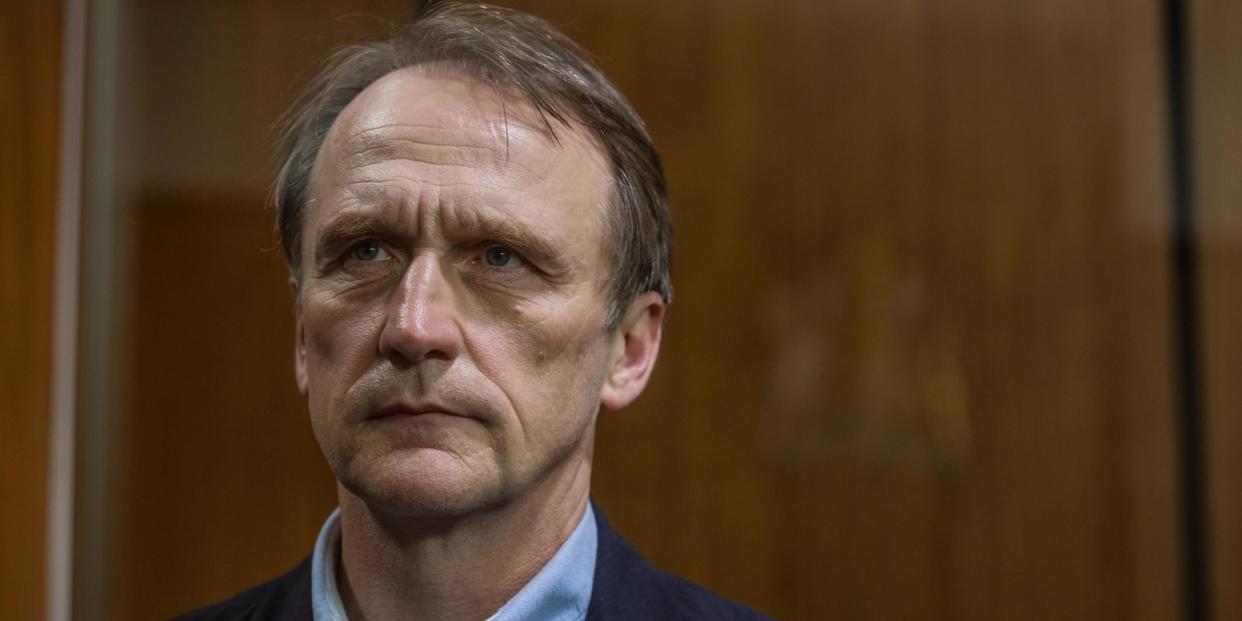
Channel 4 launches a groundbreaking new docudrama this week, and judging from the first episode, it's bound to be your next TV obsession.
We've all become fascinated with true crime documentaries like Serial and Making a Murderer in recent years, while classic crime dramas and whodunnits, from Sherlock to Midsomer Murders, have long been a staple. The Trial: A Murder in the Family brilliantly combines the two – a 'true crime, not true crime' if you will.
While there have been experiments with court cases that blurred the lines of fact and fiction before, including 2007's celebrity-filled The Verdict, this looks to take things to another level. But what's it all about? Here's everything you need to know…
The Trial: What is it?
The five-part series comes from BAFTA winners Nick Holt (The Murder Trial) and Kath Mattock (Murder), and is based around a fictional crime that has been authentically tried by a team of real and experienced lawyers, a real judge and a real jury of 12 members of the public.
The only actors in the series include the accused – the man pleading not guilty of murdering his ex-wife – the deceased, their family and various witnesses.
The documentary-drama hybrid allows viewers to see exactly what it's like inside a criminal murder trial, and to find out how the justice system works from all angles. We get to see the thoughts of the accused, the lawyers on both sides, the judge, the witnesses and the jury, who may know it's fictitious, but are judging as if it were real.
The Trial: When is it on TV?
The series launched on Sunday, May 21 and airs every night for five nights at 9pm on Channel 4. The finale will air on Thursday, May 25 at 9pm on Channel 4.
The Trial: Who is real?
The case will be examined by a team of real QCs and a real judge, while a jury put together of members of the public will decide the verdict.
Retired judge Brian Barker CBE will oversee the trial. He became an Old Bailey judge in 2000, and presided over several high-profile cases including the murders of Jody Dobrowski and Ben Kinsella, and the murder case against rapper Crazy Titch. He retired in 2015 and continues to work as a senior legal figure.
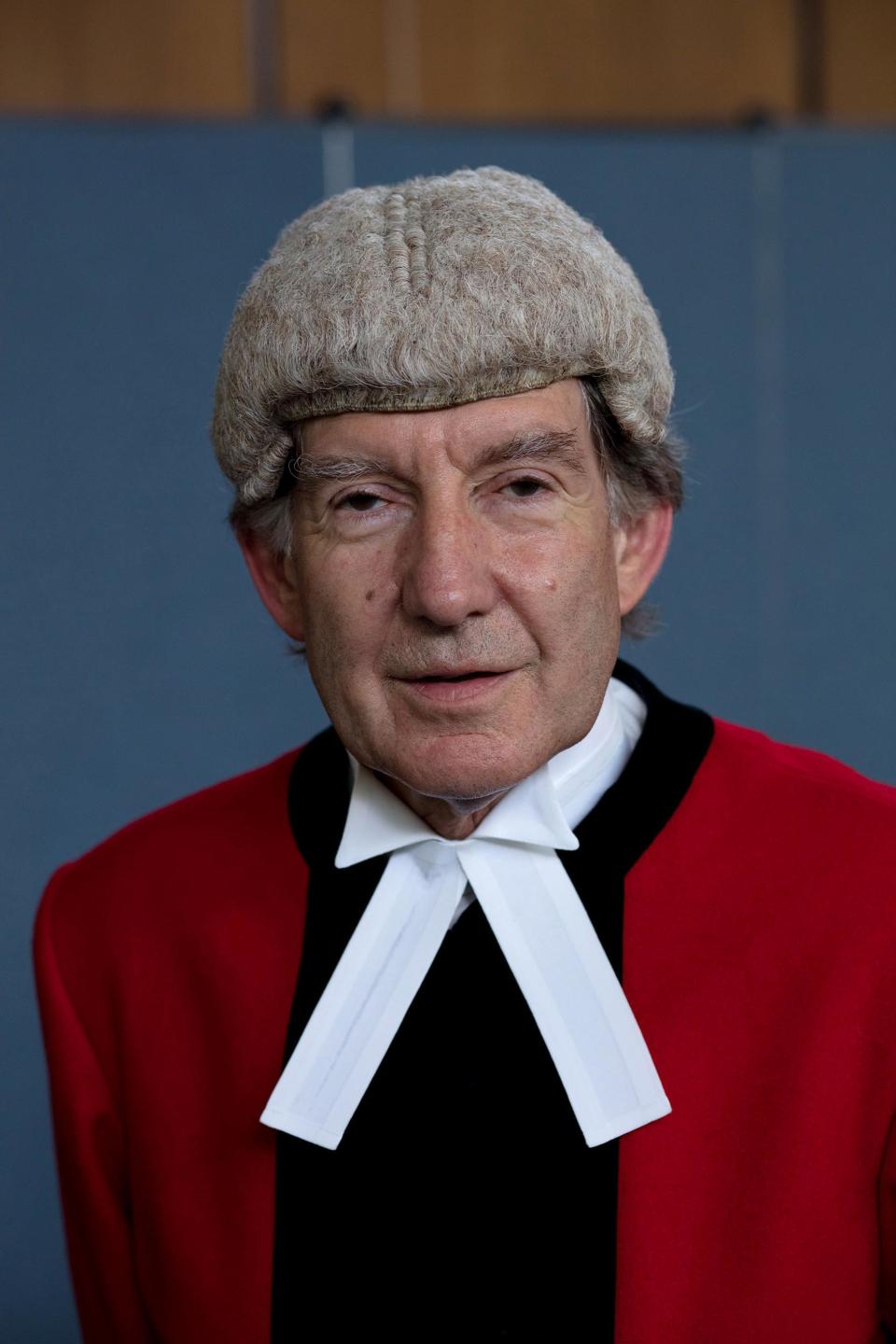
Max Hill QC is the Lead Counsel for the prosecution. With over 30 years of experience, he has defended and prosecuted in various cases of homicide, violent crime, terrorism and high value fraud. In February, he was appointed the government's new independent reviewer of terrorism legislation. He is joined by junior barrister Michelle Nelson.
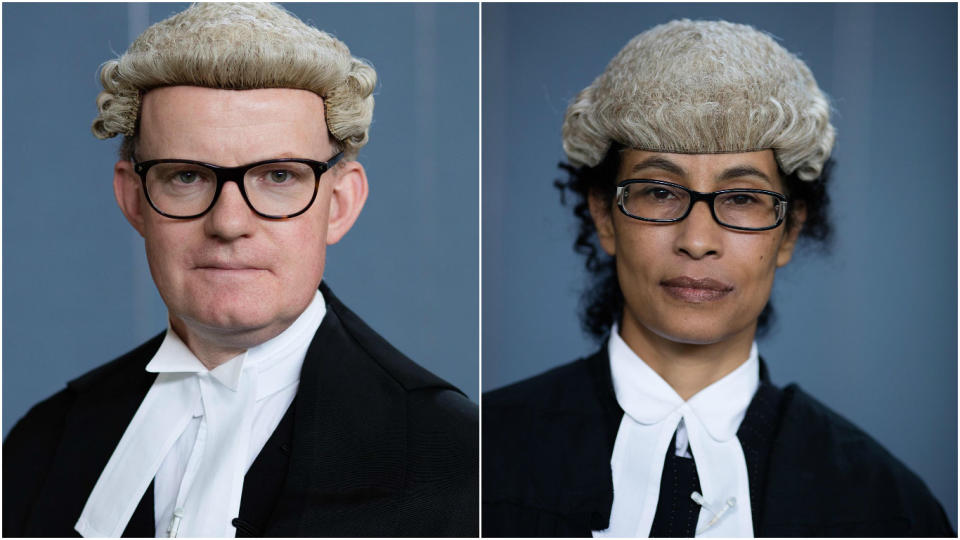
John Ryder QC is known as one of the best QCs in the UK, and noted for his ruthless skill in cross-examination. Since becoming a QC in 2000, he exclusively defends rather than prosecutes. His cases have included the murders of Damilola Taylor and PC Patrick Dunne, the defence of journalists against allegations of misconduct in public office, and broker and investment banker defendants accused of rigging LIBOR. He is joined by junior barrister Lucy Organ.
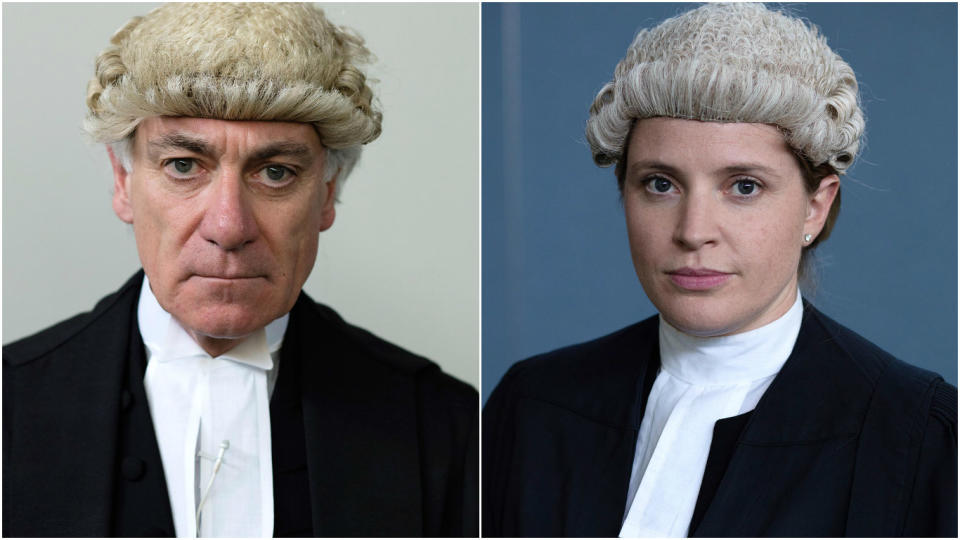
The jury are not actors, and will take in all the information before deciding on a verdict. The jury is made up of:
Cherry – Office Manager
Martha – Retired Health Visitor
Brendan – Mobile Product Manager
Tim – Student
Simon – Security Officer
James – Barber
Natalie – Teacher
Gemma - Hedge Fund Associate
Christine - Housewife
Daniel
Mark - Painter and Decorator
Lisa - Tax Inspector
There will also be testimony from real-life experts who have analysed the 'evidence'.
The Trial: Who is fictional?
Actors will portray all the people involved in the crime, as well as any witnesses such as police officers.
Michael Gould plays the accused, Simon Davis. Gould has previously had roles in the likes of Silent Witness and The Thick of It. He also played Admiral Gorin in Rogue One.
The Trial: What have we learned so far about the case?
Episode 1:
On September 24, 2015, Simon claimed he found his estranged wife Carla Davis unresponsive at her house (his former home) in Newbury.
Simon and Carla had two children together – Catherine and Oscar. They married in 2000 but separated a few years ago.

CCTV footage showed Carla dropping off the kids, then heading to a shop and a cafe before returning home at around 9.30am. Simon was seen leaving his Reading flat and driving to Newbury before parking at Carla's house.
He claimed that they had previously arranged to meet up that morning, and that they had recently rekindled their romance. He is known to have dialled 999 for one second, before calling his friend Johnny Quinn, who didn't answer. Six minutes later, he called 999 again.
Police officers on the scene noted how Simon showed zero emotion. The defence argued that he was in shock and that everyone reacts to trauma in completely different ways.
Simon told 999 that he believed that Carla had had a heart attack. It was later revealed that Carla had died from severe injuries caused by strangulation.
The prosecution argued that Simon was jealous that Carla's lover Lewis Skinner was about to move in with her and the children.
In a grim twist, it was revealed that Carla was pregnant at the time of her death.
Episode 2:
Forensic evidence revealed that Simon was the biological father of Carla's unborn child, while DNA taken from the back of Carla's neck was that also that of Simon's.
However, Simon's lawyers made it clear that experts couldn't determine how or when Simon's DNA may have been transferred. For instance, it could have been transferred via him speaking on the phone over his wife or trying to resuscitate her.
The prosecution called Carla's close friend Zoe Walters as a character witness to the stand, and recalled an incident in 2006 in which Carla and Simon had a huge argument. After Simon left, Carla told Zoe that he had hit her. However, the defence team began to query Zoe's differing explanations as to what happened.
Carla's younger sister Eleanor was also called, and she gave her recollections about the same incident, as she was called to help at the time. She also explained how Carla had secretly begun dating Lewis behind Simon's back. Eleanor also claimed that Simon was very controlling when it came to Carla's whereabouts.
Another of Carla's former lovers was also called to the stand, revealing how they also had a secret affair at Carla's and Simon's home. Carla was also revealed to have had quite a wild lifestyle and upbringing involving drink and drugs.
Simon was then revealed to have been married before Carla. His ex-wife Joanna Walker was called to the stand, having not seen him for about 25 years. She revealed that their relationship deteriorated, and on one night he gave her a "hard slap", ending their marriage.
Episode 3
A new witness emerged. Danny Mullen, who played for the same local football team as Carla's lover Lewis, claimed that he saw Lewis at Cross Street at 10.03am on the morning of Carla's death. Danny claimed that he saw Lewis walking sharply.
Danny also claimed that Lewis was known to have a temper during football matches, and found him "intimidating".
Lewis denied Danny's account. He gave his account of what he was doing that morning, which included an hour-long walk.
It was also revealed that Lewis was dismissed from the police due to an assault charge against a criminal. He was convicted of GBH.
Simon finally went on the stand to face questions. He admitted that he hit his first wife Joanna on one occasion. He denied ever causing injury to Carla.
He had no explanation as to why he hung up 999 after one second, saying he was "shocked" and had "some kind of amnesia".
Episode 4
Facing more questions, it was revealed that Carla had booked a train to Scotland, to stay in a cottage for six months, and Simon had no idea. Despite Simon saying that he believed that they were getting back together, it seemed as if Carla was planning a life away from him.
He denied having any confrontation with Carla on the morning of her death, but his shifty tone led to many of the jurors to believe he was guilty.
The jury then heard both QCs closing statements. The prosecution revealed various arguments over emails between the pair, and theorized that Carla was leaving for Scotland to have her baby in peace away from Simon. They also stated that Danny Mullen's evidence was not strong enough.
The defence argued that Lewis actually had a bigger motive to argue with and attack Carla than Simon. The jury was then sent away to make their final decisions.
The Trial: How was it made?
Channel 4 has previously broadcast director Nick Holt's The Murder Trial in 2013, a documentary with access to a high-profile Scottish court case.
Wanting to discover fresh ways of getting inside a courtroom (something which is not usually allowed in the UK), he teamed up with director Kath Mattock, the filmmaker behind BBC Two drama Murder, which depicted to-camera accounts of violent deaths.
After consulting legal advisor David Etherington QC, the duo worked with screenwriter Sarah Quintrell to read through case studies and came up with a story that involved both legal realism and an emotional narrative.
"We needed something jurors could see themselves in," Holt said. "Cases that weren't very alien like a gangland killing or terrorism. Something where they could bring their own experiences."
The murder case ran to 600 pages from scratch for the barristers to thumb through. The defendant, victim and witnesses then had to take part in two weeks of rehearsals.
"If this was scripted, you'd have an overview of the main story," executive producer Jonathan Smith said. "With this, on the day of the murder, you have 12 people with their own lives, which means 12 different scripts of what happened on that day.
"The police have investigated from their point of view, the barristers from theirs and all the characters from theirs. The actors have had to learn their stories in much the same way you'd revise for an exam. So trying to stop that all falling apart has been the knife edge we've had to live on."
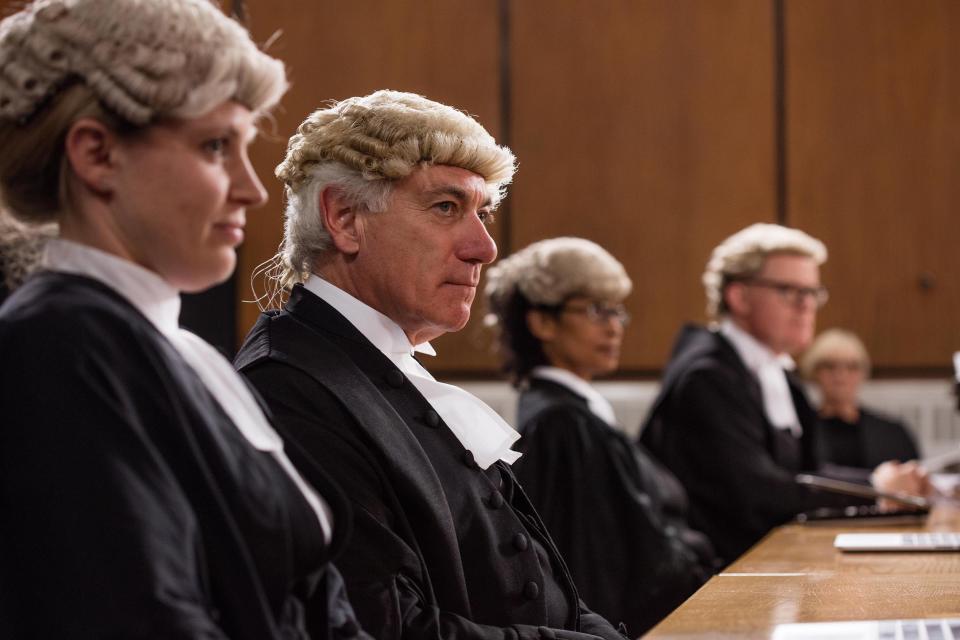
The case takes place in the decommissioned Crown Court in Newbury, and the jury was sourced from a local catchment area. The 12 final jurors were then selected at random.
The trial lasted for two weeks, with zero directorial interference during actual court proceedings. The QCs were able to complete the trial however they liked, as if it were a real case.
"The minute we went into that courtroom, we were running a live story," Smith said. "There was an unspoken but functional bond with the barristers. They're brilliant at what they do, and we just stood back and let them go. The more the barristers pushed the witnesses, the more the actors loved it."
Only three of the actors knew the truth, and had to maintain that knowledge throughout the whole trial.
The finale will have a dramatised insert which will air after the jury's verdict – showing exactly what happened regardless of whether the jury got it right or not.
Want up-to-the-minute entertainment news and features? Just hit 'Like' on our Digital Spy Facebook page and 'Follow' on our @digitalspy Twitter account and you're all set.
You Might Also Like

 Yahoo News
Yahoo News 
